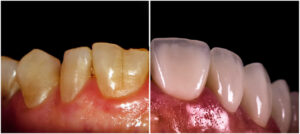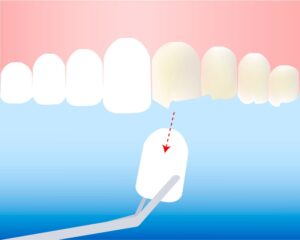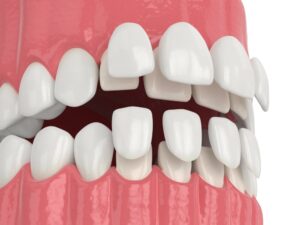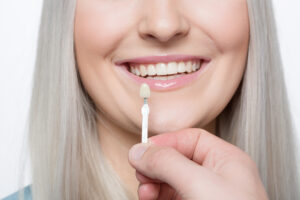Wanting to know if dental implants hurt is one of the most authentic questions we can ask ourselves. Especially if we plan or need to undergo implant treatment. Pain is one of the strongest human sensations that exist. It is logical that many times we ask ourselves about this, especially when it comes to dental procedures, famous for causing discomfort, sometimes intense.
When asking ourselves if dental implants hurt, we may be referring to two aspects in particular. The first is whether we will feel pain during the implant placement and healing process. The second refers to whether the pain is felt when we chew with the denture placed on the already healed implants. In today’s post, we will clarify both doubts.
Miami Perfect Smile: Do dental implants hurt?
If you are looking for dental implant treatment in Miami, you have just come to the right place. We offer you everything you need to make your smile look like you have always dreamed of. At Miami Perfect Smile we want you to know all the details about our treatments. That is why today we will answer that question that many are concerned about: Do dental implants hurt? Keep reading our post to discover the answer.
In addition, we remind you that in the link that we have just inserted, you can access our data to contact us or to schedule your first appointment and find out all the details and types of dental implants that we offer.

Having top-of-the-line technology and using high-quality materials characterizes us as professionals. Our goal is your well-being, which is why we strive to ensure that you receive excellent treatment in our facilities. Our best cover letter is the satisfaction of our patients.
We know that pain is one of the least pleasant sensations (and that perhaps one the patient expects the most) when it comes to teeth. That is why we dedicate ourselves to the fact that our treatments are carried out in the most delicate and kind way with our patients.
Something else: If you have any dental insurance in the USA that covers implants, you should be aware that we also accept all plans and insurance policies. Maintaining fair prices and a high-quality standard is another of our pillars.
What is pain when it comes to dental implants
Nobody likes to feel pain. This feeling can become so strong and tormenting that when some treatment includes expectations of pain, it becomes a real concern. That is why many people, before doing any oral treatment, feel the need to know if it causes pain. Before answering the question of whether dental implants hurt, the first thing we should know is what pain is.
For medicine, pain is above all a signal that tells us that something is wrong in the body. Pain is created and transmitted by the peripheral nervous system, and reaches our brain in the form of neural impulses that come from the stimulation of the nerve endings in the area where pain is felt.
We can say that pain is a sensory perception. But it must also be said, and this is important for the subject at hand, that pain is a subjective perception of variable intensity. This means that not all people perceive pain in the same way, nor do they have the same “pain threshold”. What for some patients is little pain, for others it can be a noticeable pain, or even a lot of pain.
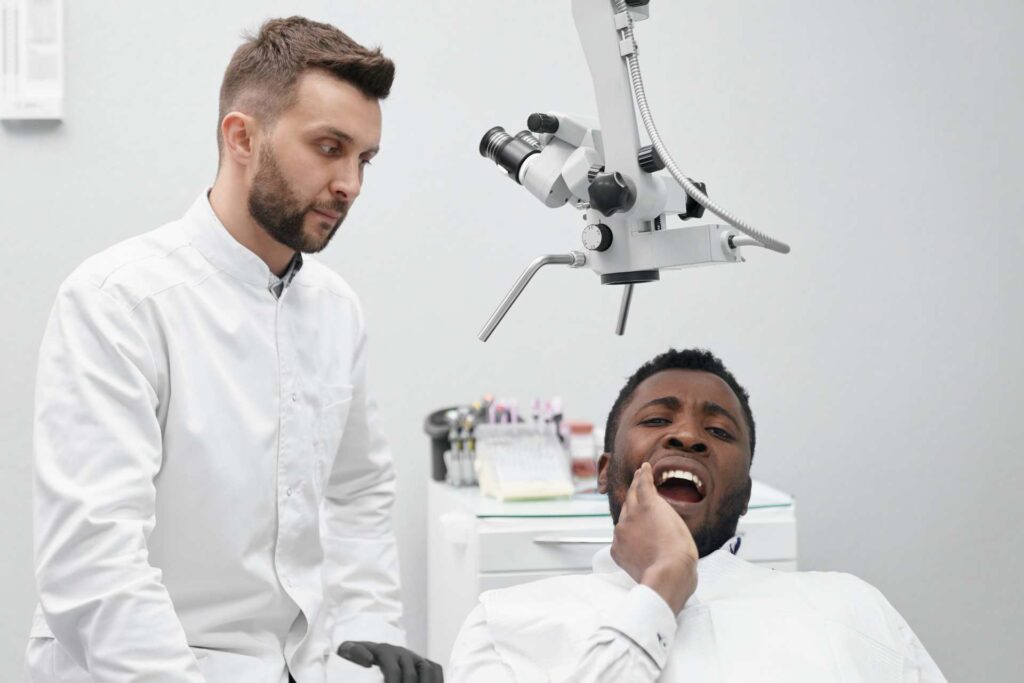
Pain works as an indicator that helps locate a problem or disease. There are some sensory variants of pain, that is, varieties of the way pain is perceived. Because of this, pain can be perceived as:
- Pricking or stabbing pain
- Tingle
- Sting
- Burning
- Disgust
- Annoyance
Chronic pain and acute pain in relation to dental implants
From the point of view of its durability, pain can be classified into two types:
Acute pain (is normal)
It arises suddenly, and can be the product of the appearance of some disease, due to inflammation, due to an injury, etc. When the pain tends to last a short time and disappear, it is considered acute. Acute pain can usually be treated and diagnosed.
Acute pain is the type of pain that can be normal after a dental implant operation, and should disappear soon or very soon depending on the patient. The maximum time that there can be isolated episodes of acute pain is 2 weeks.
Chronic pain (not normal)
This type of pain has a very long duration, ranging from 6 months to years. It is usually a reflection of having various health problems. This type of pain affects the daily life of those who suffer from it. It becomes a disease in itself, which can cause sleep disturbances, depression, chronic fatigue, mood swings, etc.

It is not normal for dental implants to cause any type of chronic pain. Dental implant treatment is usually successful in 98 to 99% of cases. If there is chronic pain, it is part of the 1 or 2% of cases where something did not work quite right.
Postoperative pain: the most common after dental implants
Regarding the pain that can be felt due to the installation or use of dental implants, in most cases it is acute pain that disappears over the days. If all goes well with the installation of dental implants, this pain should disappear within approximately 7 to 10 days, maximum 14. It is a postoperative pain generally caused by tissue inflammation during the healing process. Let’s look at this topic in more detail below.
Do dental implants hurt? Placement, healing and use
The process of placing dental implants should not cause any pain. This is so thanks to the fact that the patient will be anesthetized. In most cases, local anesthesia is used, although, in cases of fearful patients, general anesthesia can be given. Installing a dental implant involves surgery, but it is not complicated.
Many people are afraid that dental implants will hurt, for the simple fact that it is a surgical process. Maybe it will help you to know a little about the process. That is why let us now see, in 3 steps, how the operation to place dental implants takes place.
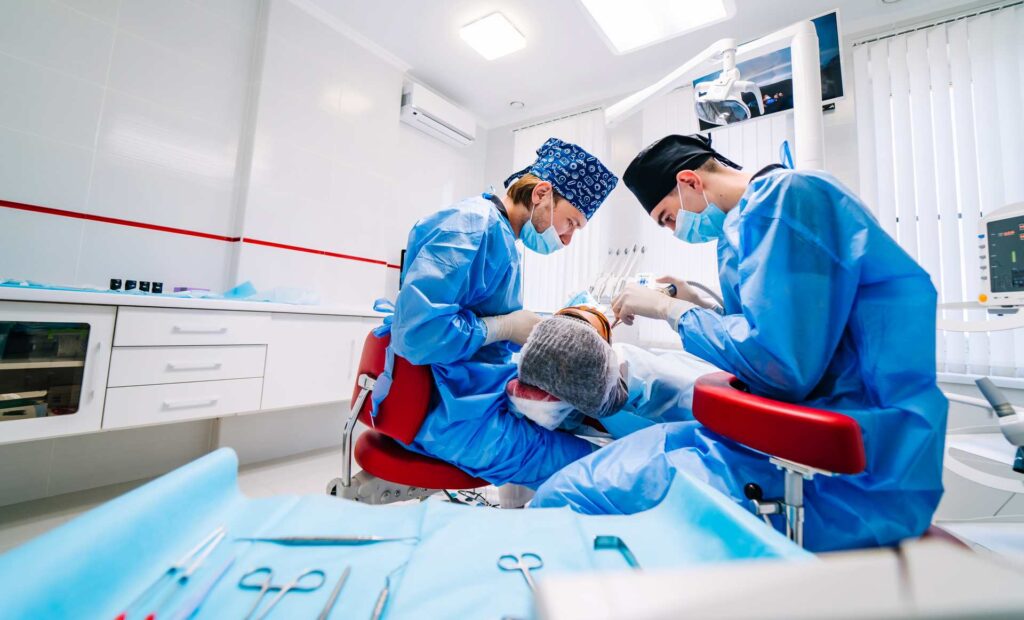
3 steps to place dental implants
The placement of the implants is a fairly simple process. It does not cause any type of pain, since, as we said above, it is performed under anesthesia. The anesthesia will be responsible for numbing all the nerve endings in the area where the dental implant will be placed. This will be enough to not feel pain at this stage of the process. You may experience some sensation of pressure in the mouth, but it does not turn into pain.
Step 1
In most cases, the anesthesia given to the patient is local. Then you have to wait a reasonable time until the area where you are going to work is completely anesthetized. For patients who feel anxious when going to the dentist, oral sedation may also be applied.
Step 2
Step 2 consists of making an incision in the gum. The selection of the place where the incision will be made is the result of a detailed prior planning. For this planning, 3D computerized models of the patient’s jaw and dental layout, X-rays and other means are used. Computerized planning allows you to precisely choose the exact point of the gum and bone where the implant will go, which is inserted in the next step.
Step 3
The dental implant is inserted into the maxillary or mandibular bone, as appropriate. Although there are implants that are cemented to the bone, the most typical and practical way by which the implant is permanently inserted into the bone is the thread.
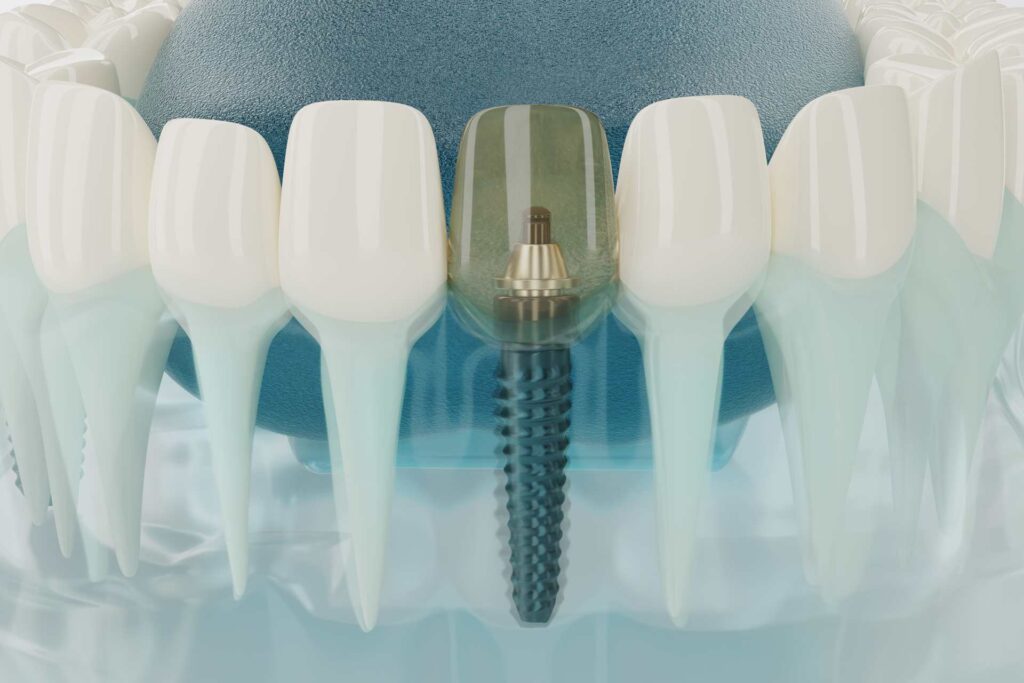
The implant is a metal post that will function as a root for an artificial tooth. In many cases, the procedure is so precise that it does not require stitches or sutures for the gums to heal. In some cases, a maximum of 2 injections is given.
After the implant is placed in the bone, it is covered with a “cap” on top to keep it secure while it finishes healing over the next few months. The amount of time for healing will depend on each patient.
Finally, the implant will osseointegrate naturally, which means that it will integrate with the bone tissue organically and permanently. Only when the implant is osseointegrated can the dental crown that will replace the natural tooth be placed on it.
Some tips to avoid postoperative pain
There are some medical recommendations that help reduce the postoperative pain that can be felt after the placement of dental implants:
- Do not consume food that is too hot in the first 48 hours.
- Avoid using straws for the first 24 hours after surgery.
- Make salt water mouthwashes 3 or 4 times a day, after 24 hours.
- Maintain a liquid diet for 24 to 48 hours.
- Do not smoke for 3 days after surgery.
- Use pain relievers and anti-inflammatories to reduce any discomfort.

Do dental implants hurt when they are healing?
After the placement of the implant, comes the healing stage. It is in this period of time that pain can occur. This pain is the most common, and is due to the inflammation produced by the gum as a reaction to the new object. Normally it is an acute pain (that is, temporary and episodic) that should not last longer than about 7 to 10 days. It is also a mild pain that can be controlled by analgesics, which will be prescribed by the same dentist. It should be borne in mind that the greater the number of implants, the greater the sensation of discomfort.
When the pain exceeds 10 days (or 2 weeks at most), you should go to the dentist immediately, as it may be due to causes that are out of the ordinary. Sometimes the healing process is complicated and it is best to solve the problem as soon as possible, to save the implants. Some of the most common complications, which can cause dental implants to hurt beyond 10 days, can be the following:
- Loose implant screw: When the implant screw that connects to the abutment (where the prosthesis will be placed) has become loose, it can cause pain. This can occur at the time of healing due to a bad mouth action, a strong bite, etc. In these cases we must go to the specialist. The dentist will remove the implant, clean the area well, and then place it back.
- Loose dental implant: In a very small percentage of cases, the implant may not osseointegrate. This may be because the patient has a disease (such as diabetes or bone metabolism disorders), or because they do not have enough bone to support the implant. The consequence of this is that the implant becomes loose and does not heal properly, which is why it may cause pain.
- Infection: Infections are a cause of pain when an implant is healing. The infection can be caused by pathogens that enter the area of the implant, or by the body’s rejection of the implant. This will generate strong pain around the dental implant, and we will be able to see the area reddened by bleeding and plaque, etc. Infections can ruin the implant, so it is important to see a specialist immediately to try to save it by eliminating the infection.

Do dental implants hurt when I chew?
Once the healing process is finished (which, as we said, varies depending on the patient), the crowns are placed on the dental implants. By that time we should not feel any discomfort or pain in the implant when we chew. In fact, with the passing of days and months, it is normal to feel that we are chewing with our own teeth.
That is why we can say that dental implants are completely painless when chewing. If we feel some kind of pain during this period, it may be for other reasons, such as the ones we will see in the next section.
Why do dental implants hurt once they are placed?
It is important to know that there are some factors that may be causing dental implants to hurt after being placed. As we saw above, implants should not normally cause any pain. However, there are conditions that can affect the correct adaptation of the gums to them. Many of these factors depend on the patient, so the person himself can avoid being affected. In other cases, the factors are unavoidable, since they are based on pre-existing conditions (such as suffering from a disease, etc.). Let’s see.
Damaged nerve after surgery
After surgery to install the implants, there are usually no complications. However, one of the causes of dental implant pain is that the nerve has been damaged. In this case we must go immediately to our implant dentist.

Pre-existing diseases
There are some diseases that make it difficult for the bone and gum tissue to assimilate dental implants. Diabetes, different types of bone metabolism diseases, and periodontal disease are some of these diseases. This type of disease hinders the osseointegration process, which is so important to ensure that the implant is well assimilated and that it remains anchored to the bone. In those cases, the pain can be caused by movements of the implant, or by bleeding gums.
Lack of oral hygiene
Although when the implants are installed we must take precautions not to brush the area with great force, then it is important to continue maintaining good oral hygiene. One of the things that we must avoid at all costs is an infection due to lack of hygiene during the healing process of dental implants.
Brushing the teeth can be a bit uncomfortable when the implant is newly placed, but we must not stop doing it, even if it is delicate. Lack of oral hygiene can cause food to accumulate, and that is the cause of infections and pain.

Consumption of tobacco, alcohol or coffee
Ideally, while the osseointegration process occurs, is to stop consuming any of these 3 products: tobacco, alcohol and coffee. Tobacco toxins can cause further inflammation of the gums, which will increase the pain. They can also cause infections in the implant wound, which is still in the process of healing and osseointegration. On the other hand, coffee and alcohol work as vasodilators that can cause bleeding and slow wound healing.
Sensitivity thresholds
As we saw in the first section in which we defined what pain is, we know that it includes a subjective component. That is why, to know if dental implants hurt or not, we must take into account what our sensitivity threshold is. Each patient reacts differently to the same stimulus, so the experience will be different for each person, and it is difficult to define if someone will hurt or not.
In addition, the installation of a dental implant will cause more or less pain depending on where it is placed and the number of implants that have been placed at the same time. Patients will also have more sensitivity if they suffer from any disease prior to implantation.
Parafunctional habits
It is known as parafunctional habits, all those movements that we make with the jaw and that do not have a functional sense. For example, chewing gum, chewing tobacco, biting or biting nails, chewing on objects such as the caps of pens or pencils, even the movements we make if we suffer from bruxism during the night, grinding or clenching the teeth as a gesture to release stress, etc.
These types of physical actions can cause the implants to loosen, move out of place or lose their fixation, all of which can cause some degree of pain. In all these cases, the dentist must be informed of what is happening so that he can make a decision.
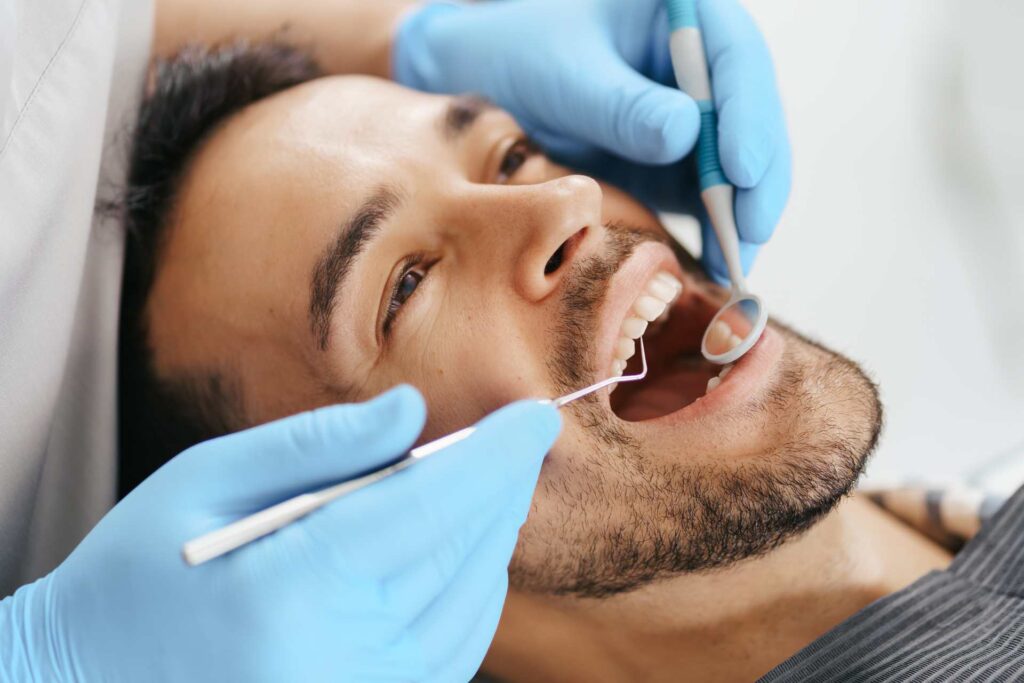
Quality of the materials used for the implant
It is important that, as patients, with the perspective of preventing dental implants from hurting in the future, we ask our dentist about the type of materials available and their different qualities. The better the materials and the quality of the implant placement process, the more likely the surgery will be successful. Quality implants will be able to osseointegrate much faster and better. All this translates into feeling less pain or almost none.
Misplacement of the dental implant by medical personnel
One element that we should not overlook is to verify that the medical staff and the clinic where we will be treated have good references. Seeking the opinions of other patients who have had implants placed in the same clinic and with the same team of professionals is a letter of guarantee that we can have. Ultimately, a poorly placed implant will be the source of a lot of pain and complications. All this can be avoided if we receive the treatment by duly qualified personnel and in optimal hygiene conditions.



